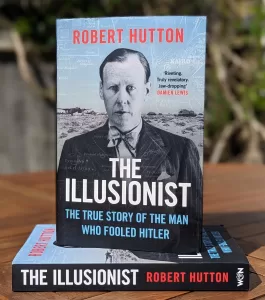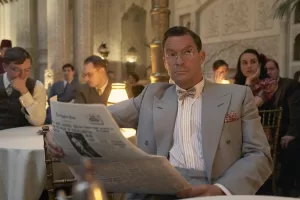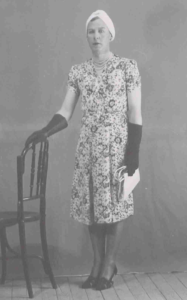
Cairo, 1942: If you had asked a British officer who Colonel Clarke was, they would have been able to point him out. Always ready with a drink and a story, Clarke was a well-known figure in Cairo social circles and nightlife. If you then asked what he did, you would have less success. Those who knew didn’t tell—and almost no one really knew at all.

Out now in the UK and the US, The Illusionist is the amazing true story of Dudley Clarke, a British army officer who realised that military deception could be run on a scale no one imagined possible. A scale, indeed, that people have failed to grasp ever since.
You may have heard about the D-Day deceptions or Operation Mincemeat. But long before anyone else was thinking about these things, Clarke had grasped that a global war allowed the deception of the enemy on a new scale.

It’s no exaggeration to say that before any other deceivers had done anything, Clarke and his team in Cairo had done everything.
Extract: Click here to read the prologue now
If you’ve heard of Dudley Clarke, it’s probably from Dominic West’s highly enjoyable portrayal of him in the BBC’s drama series SAS: Rogue Heroes. Clarke was friends with David Stirling, and helped him set up the SAS, giving it the name of a fake unit he’d already invented. The TV version of Clarke was great fun, but the real story is even more extraordinary.

The other reason you might have heard of Clarke is his arrest in Madrid in 1941. He was at the time “dressed, down to a brassiere, as a woman”.
This was a huge intelligence scandal: Clarke’s head was full of British secrets, and he was being held in a Spanish prison, in circumstances that were, by the standards of the day, unusual. Churchill was consulted. Clarke’s career would only be saved by, of all people, the German navy.
Mysterious, humorous, imaginative, unflappable: Dudley Clarke was a great British eccentric. The Illusionist tells the story of how he found his calling in the midst of the battlefields of the Middle East.
Buy it now!
Further reading on deception
Want to know more about Dudley Clarke, military deception and magic? These are some of the key books that helped me as I researched and wrote The Illusionist.
- The Deceivers by Thaddeus Holt – This monumental history of Allied WW2 deception sets out to tell the entire story, listing every known operation and double agent in its 1,200 pages. I read my copy so hard it fell apart.
- Churchill’s Wizards by Nicholas Rankin – I first came across Clarke when the file on his Madrid arrest was released. But like other journalists writing it up, I didn’t really have any idea who he was. It wasn’t until I read this very enjoyable book years later that I grasped the importance of his deception work. Rankin takes us back to WW1 to offer a wider history of British deception.
- Operation Mincemeat and Double Cross by Ben Macintyre – bestselling accounts of later WW2 deceptions. Readers of The Illusionist will find I’m sceptical of the impacts of Mincemeat, but Ben’s is the best telling of the tale.
- The Phantom Army of Alamein by Rick Stroud – focuses on the story of the artists and film-makers who turned their hands to camouflage.
- A Force and Diversion and Deception by Whitney T Bendeck – scholarly but affectionate accounts of Clarke’s work.
- Practise to Deceive by Barton Whaley – a series of short studies of military deception, by the man who turned it into a proper academic subject.
- Speed Aggression Surprise by Tom Petch – Tom focuses on Clarke’s relationship with the SAS and the Commandos.
- War of Shadows by Gershom Gorenberg – an enjoyable history of the intelligence war in the Middle East, with a great account of the British hunt for Rommel’s “Good Source”, eventually unmasked as the US officer Bonner Fellers.
- Hiding The Elephant by Jim Steinmeyer – a wonderful history of the Golden Age of stage magic.
- Cairo In The War by Artemis Cooper – a slight cheat this one, because there’s little on deception in here, but it’s brilliant on the atmosphere of Egypt at the time.
*I receive an affiliate fee for purchases through some links on this page, but really, I’d much prefer you to support your local bookshop by buying direct from them.




